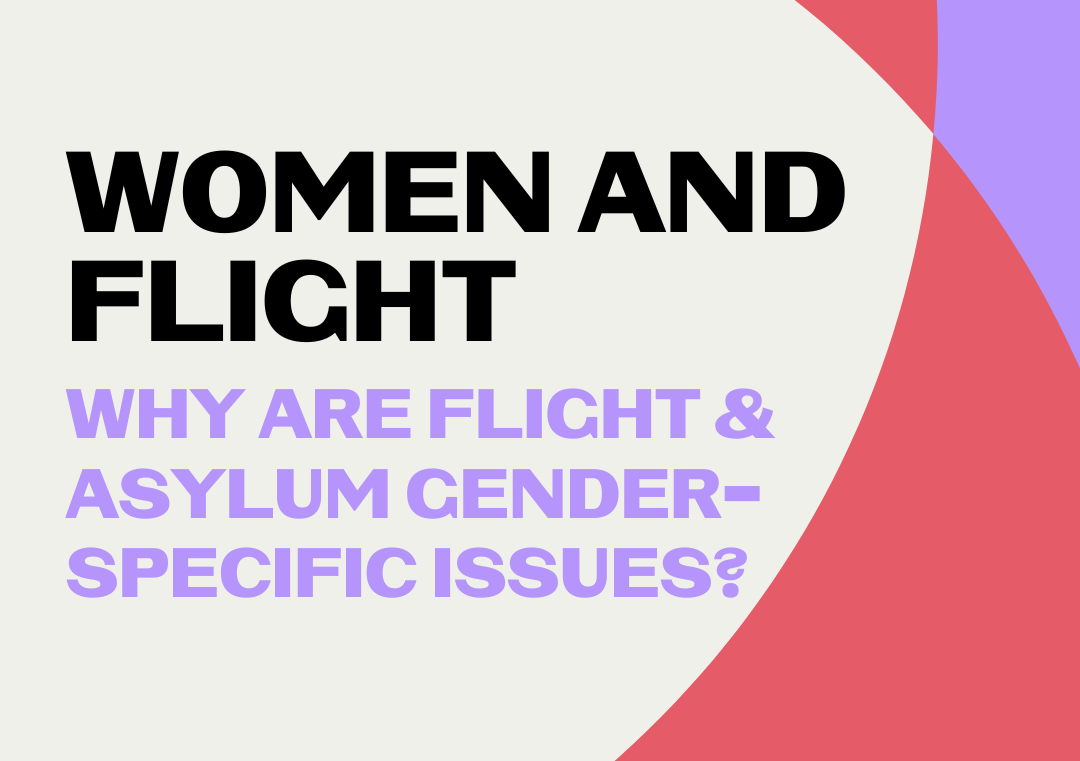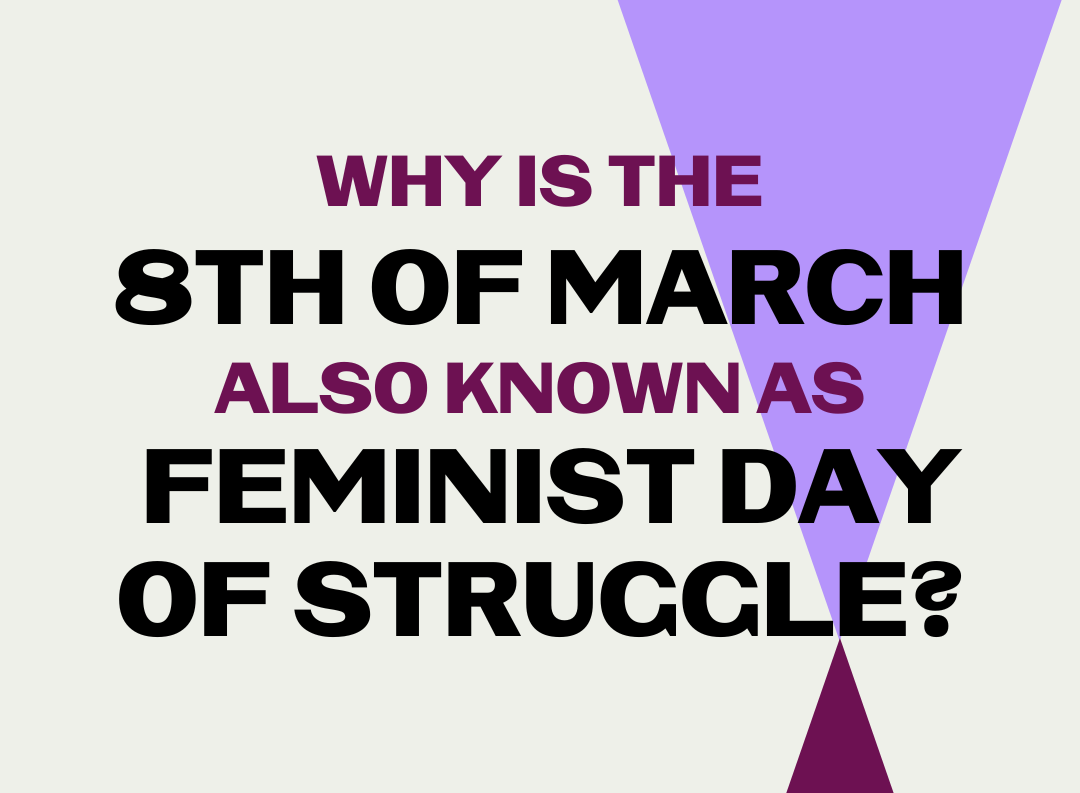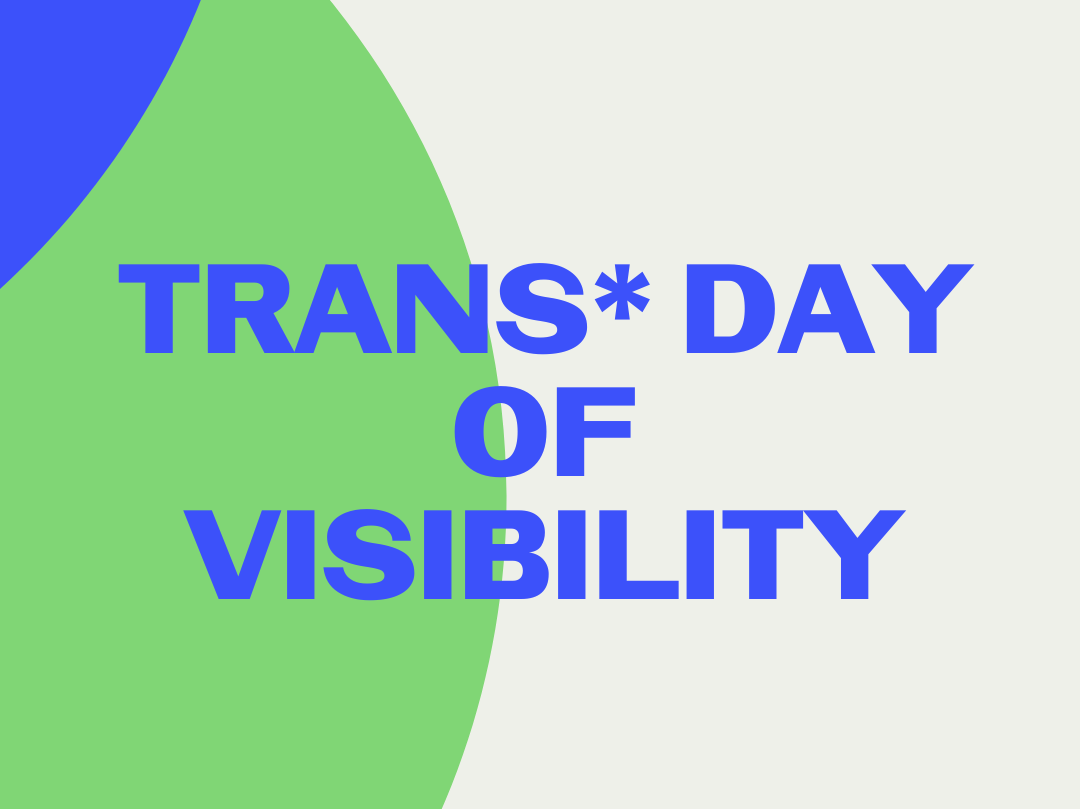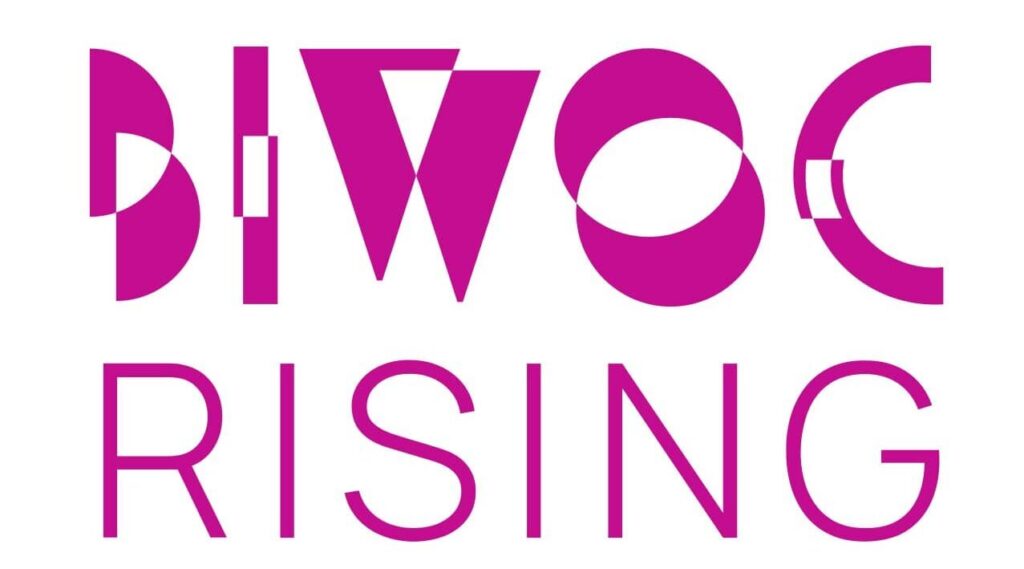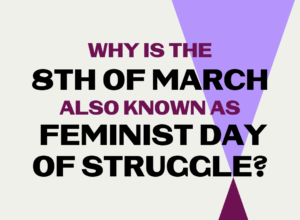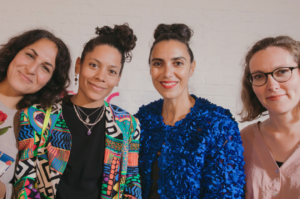The proportion of women among refugees worldwide is 47%.
1/4 of fleeing women have experienced sexualized violence.
1/2 have experienced other forms of physical violence – before, during, and after the flight.
Before the flight…
The most common gender-specific reasons why women flee are experiences of violence. These can be forms of sexualised violence, such as rape, domestic violence, forced marriage, forced abortion, abduction or genital mutilation. Sexualised violence is always also a weapon of war.
During the flight…
Costs for smugglers, problems with travel documents or at border posts push some women into prostitution. In addition, the closure of legal escape routes, such as the Balkan route, has led to many women (often with children) being stuck in „refugee camps“. There they live in inhumane conditions and are exposed to the risk of sexualised violence. Usually, there are no measures in place that consider the special needs of women (e.g., lockable, gender-segregated sanitary facilities).
After the flight…
In refugee accommodation centres, many women experience discrimination and racist violence and are usually not adequately protected from assault. Too few people in too little space and no places of retreat or shelter for women can lead to an increased incidence of sexualised violence. Also, “socially integrated” into the destination country, refugee women face further gender-specific challenges. These include experiences of violence and traumatisation, but also the difficulty of reconciling work and childcare, for example when women have fled alone with children.
What is root of the problem?
Among other things, border regimes themselves. Border regimes kill every day. But borders are neither inevitable nor natural. Borders as we know them today have only existed for a few hundred years, especially since the Second World War. Borders are not real fixed barriers – they are a regime permeated by capitalist and racist hierarchies. They are open to capital and to a select few – while undesirables drown or freeze to death at them. Border regimes thus organise the world and decide on privileges, life and death.
Why do border regimes exist?
The border regime selects the people who are allowed to migrate. For wealthy classes, investors, and „expats,“ borders are practically nonexistent. For many others – poorer and racialized people – they are either an insurmountable fortress or only passable if capitalist interests allow them to pass borders, e.g., in the context of agricultural or care work. Border regimes assess people based on their capitalist usability and put them into categories of desired and undesired. Migrated and refugee people are seen as commodities that are traded and sorted out on markets if they are deemed defective.
Once again, capitalism, colonialism and patriarchy are intertwined. The result is a system that hierarchises people, with racialised women*, trans* and inter* people being subjected to the most blatant violence.
So what is the consequence?
A new world of mobility is possible – through overcoming capitalist and racist exploitation relations. So, it’s not just about „Open Borders“ but „Abolish Borders.“ Police, prisons, and borders operate on a common logic of immobilization that oppresses people according to racist and capitalist profit logic. Just as movements to abolish police and prisons aim to replace violent institutions, border regimes must also be abolished because they are inherently violent.

